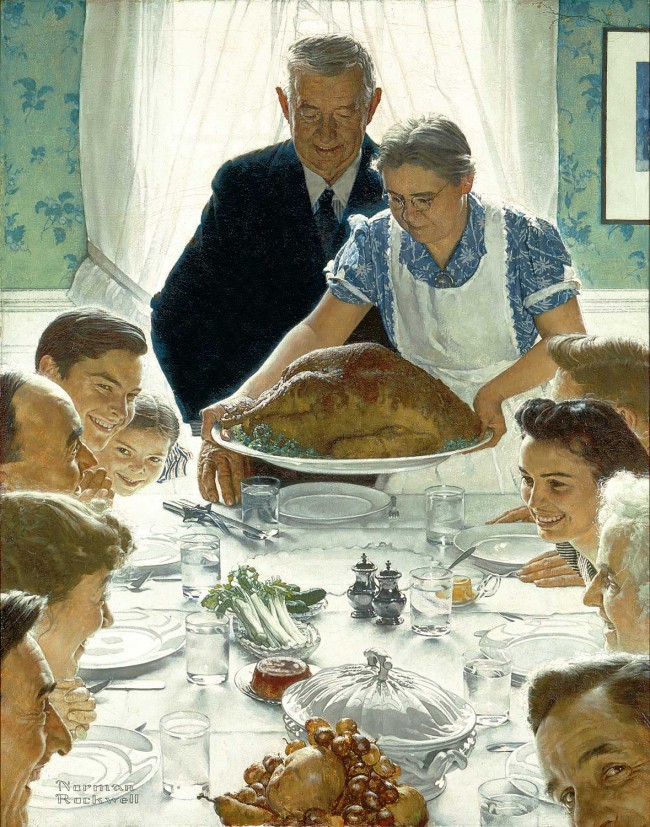Spotlight on Student Loans:
A time for thanks?
Thankfulness in the midst of turmoil
Thanksgiving, a humble holiday for giving thanks—on paper, at least—often comes with a lot of baggage: to say that people have mixed feelings would be putting it lightly. For some, it’s a time to celebrate with family and friends—exercising gratitude for the many blessings of life by sharing abundantly. We make great meals, often employing recipes passed through the generations. We give generously to causes that benefit our communities and our neighbors. We cook, laugh, and feast with loved ones on a holiday that seems specially designed for just such frivolous family time.
For many, however, Thanksgiving is a time for dread—a poignant reminder of hardships and heartaches. We remember the oppression of ancestors long—and some not-so-long—past. We dread spending time with intolerant relatives who loudly disapprove of our values or lifestyles. We imagine how we’ll celebrate with empty chairs: vacated by death, disease, and disagreement. We think about the approaching holiday season and our empty bank accounts that leave no room for new toys, clothes, or sufficient heat. We hear friends and neighbors debating how big a turkey to buy, while we wonder if the food bank is going to have anything for our own modest tables. Thanksgiving, a holiday that is meant to bring us together, sometimes makes us feel even more disconnected than ever.
And yet, Thanksgiving as we know it was born of a time even more divided than this.
Thankfulness in time of war
Although Thanksgiving had been celebrated in certain parts of the country since its inception—especially New England—it wasn’t recognized as a federal holiday until during Abraham Lincoln’s presidency.
By this point, with the fresh memory of the bloody Dakota Wars of 1862, the country was embroiled in civil war, a conflict that threatened to tear the country in half and further endangered its core values of life and liberty. Lincoln, spurred by civilian encouragement, understood that the nation needed a day to pause and give thanks for the many gifts of the land.
Although we were plagued by “waste that has been made in the camp, the siege and the battle-field,” harvests remained plentiful—Americans continued to be blessed by the bounty of the land. In his announcement of the new holiday in 1863, Lincoln also implored the people to pray for peace, to “commend to God’s tender care all those who have become widows, orphans, mourners or sufferers in the lamentable civil strife,” and for the restoration of “peace, harmony, tranquillity and Union.”
Thankfulness in time of disease, division, and inequality
Tragically, the end to the Civil War did not abolish our divisions. We remain a deeply fractured nation, divided by race, political ideology, wealth, and more. These are themes that have marked our nation from the beginning: a confederation of peoples fleeing persecution in their home lands, only to displace, oppress, and enslave others in a new land. We seem to have learned little from our forebears, and yet, every year we are encouraged to be grateful.
This Thanksgiving, let us consider another vision. Rather than lament the “waste” of war, let us work to end all wars. Rather than praying for peace, let us work for an end to hate. Rather than mourning for the widowed and the orphaned, let us build systems that provide for all. Rather than lamenting our civil unrest, let us tear down racism, sexism, apathy, and complacency.
Let us work toward true harmony, the blending of different tones and timbres into one beautiful chord. Let us build a future where we can be grateful for all peoples, all cultures, all gifts. For starters, we need to take off the rose-tinted glasses and remember that Thanksgiving was never so perfect as a Norman Rockwell painting. Change starts with truth-telling: we have work to do.
If you’re pursuing Public Service Loan Forgiveness and you haven’t met with us yet, schedule your free 15-minute Discovery Session to find out if you qualify for PSLF, or what you can do if you don’t.




